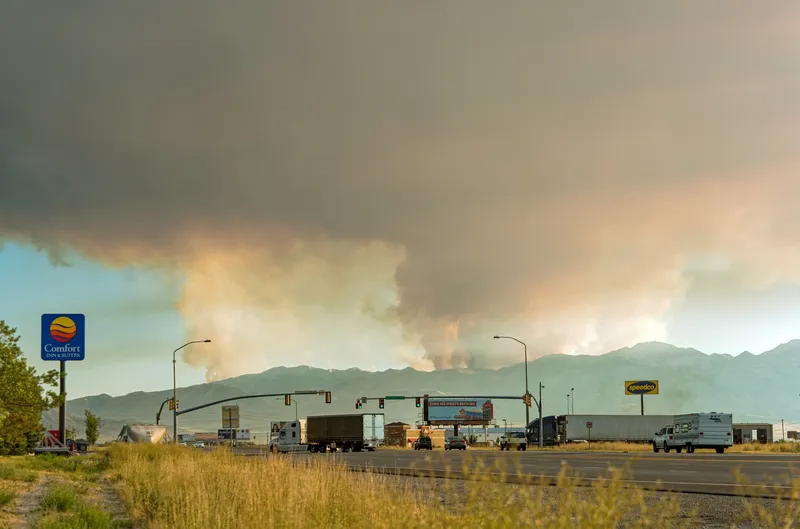According to The Hill, US toll roads may surge under a US$1 trillion infrastructure proposal being floated by Donald Trump. The president elect’s idea for rebuilding the nation’s roads and bridges relies on private companies instead of the federal government to back transportation projects.
Experts believe this means investors will be attracted to projects that can recoup their investment costs using some sort of revenue stream, such as through tolls or user fees.
“If he moves forward with an infrastr
January 10, 2017
Read time: 3 mins
According to The Hill, US toll roads may surge under a US$1 trillion infrastructure proposal being floated by Donald Trump. The president elect’s idea for rebuilding the nation’s roads and bridges relies on private companies instead of the federal government to back transportation projects.
Experts believe this means investors will be attracted to projects that can recoup their investment costs using some sort of revenue stream, such as through tolls or user fees.
“If he moves forward with an infrastructure plan and there are tax incentives to investors that could bode well for more investments in new toll facilities,” said Patrick Jones, executive director and CEO of the3804 International Bridge, Tunnel and Turnpike Association.
Cities and states have long struggled to raise revenue for transportation projects. The federal gasoline tax has remained static for over 20 years, while states are banned by the federal government from tolling existing lanes on interstate highways.
Outgoing Transportation Secretary Anthony Foxx said traditional approaches to funding and delivering federally-funded transportation programs... may no longer be capable of providing Americans with a state of the art transportation system.
Trump has floated a plan that would offer US$137 billion in federal tax credits to private investors who back transportation projects, which he says would unleash up to US$1 trillion worth of infrastructure investment over ten years. He argues that construction costs tend to be higher and take longer when the government builds projects instead of the private sector.
Historically, the country’s infrastructure is financed through state and local governments using a mix of their own revenues, federal highway aid and issued bonds.
Public-private partnerships, which have been advocated by both sides of the house, allow private firms to bid on transportation projects, build and maintain the project for a set amount of time, and recover costs through tolls or set state payments.
Proponents of tolling argue that it makes sense to charge motorists for the roads they use, as opposed to charging people at the pump with a gas tax increase to pay for deteriorating roads.
“Not all states might have the freedom or political will” to raise the gas tax, Jones said. “But some say we might be willing to pay a toll.”
Jones emphasised that only toll projects that make sense, such as in areas with high traffic volumes, are likely to be financed.
“Tolling is a powerful and effective tool for development, but they have to be well considered projects that make sense,” he said.
Experts believe this means investors will be attracted to projects that can recoup their investment costs using some sort of revenue stream, such as through tolls or user fees.
“If he moves forward with an infrastructure plan and there are tax incentives to investors that could bode well for more investments in new toll facilities,” said Patrick Jones, executive director and CEO of the
Cities and states have long struggled to raise revenue for transportation projects. The federal gasoline tax has remained static for over 20 years, while states are banned by the federal government from tolling existing lanes on interstate highways.
Outgoing Transportation Secretary Anthony Foxx said traditional approaches to funding and delivering federally-funded transportation programs... may no longer be capable of providing Americans with a state of the art transportation system.
Trump has floated a plan that would offer US$137 billion in federal tax credits to private investors who back transportation projects, which he says would unleash up to US$1 trillion worth of infrastructure investment over ten years. He argues that construction costs tend to be higher and take longer when the government builds projects instead of the private sector.
Historically, the country’s infrastructure is financed through state and local governments using a mix of their own revenues, federal highway aid and issued bonds.
Public-private partnerships, which have been advocated by both sides of the house, allow private firms to bid on transportation projects, build and maintain the project for a set amount of time, and recover costs through tolls or set state payments.
Proponents of tolling argue that it makes sense to charge motorists for the roads they use, as opposed to charging people at the pump with a gas tax increase to pay for deteriorating roads.
“Not all states might have the freedom or political will” to raise the gas tax, Jones said. “But some say we might be willing to pay a toll.”
Jones emphasised that only toll projects that make sense, such as in areas with high traffic volumes, are likely to be financed.
“Tolling is a powerful and effective tool for development, but they have to be well considered projects that make sense,” he said.









